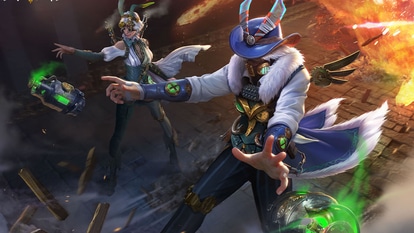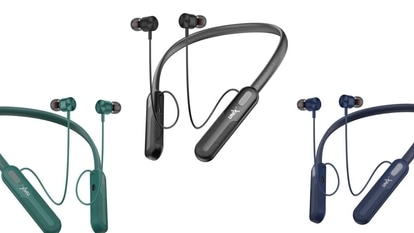Redmi Note 9 review: Covers the basics, but does that well
The Redmi Note 9 can get you almost the same kind of performance as the Redmi Note 9 Pro and the Redmi Note 9 Pro Max, but at a cheaper price point.
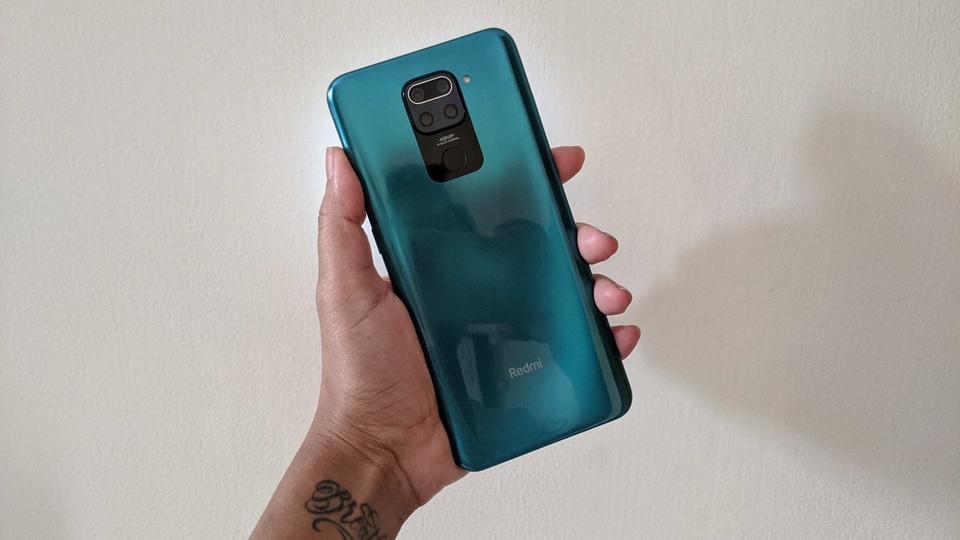
Brand: Redmi
Product: Redmi Note 9
Key specs: 6.53-inch punch hole full HD display, quad-camera setup with 48MP primary sensor, MediaTek Helio G85 SoC, 5,020mAh battery with 22.5W fast charge support, 3.5mm headphone jack, IR blaster.
Price: starts at ₹11,999
Rating: 4/5
After the Redmi Note 9 Pro and the Redmi Note 9 Pro Max we have the Redmi Note 9 to think about.
As the name would suggest, the Redmi Note 9 Pro is the most affordable of the Redmi Note 9 series, with prices starting from ₹11,999 for the base variant. The whole point of an “affordable” device in a series obviously means there are tradeoffs. So let's get them out of the way first.
The Redmi Note 9's 6.53-inch screen is smaller than the 6.67-inch on its siblings, but they are all FHD+ displays. The camera sensors are also smaller (more details about this later). While all three phones in the series sport a 5,020mAh battery, the Redmi Note 9 supports 22.5W charging, while the Note 9 Pro, interestingly, supports 18W fast charging. The Redmi Note 9 Pro Max offers the fastest charging speed - of 33W - among the three. And lastly, the Redmi Note 9 comes with MediaTek's Helio G85 chipset under the hood as compared to the Snapdragon 720G that the Note 9 Pro and the Note 9 Pro Max have.
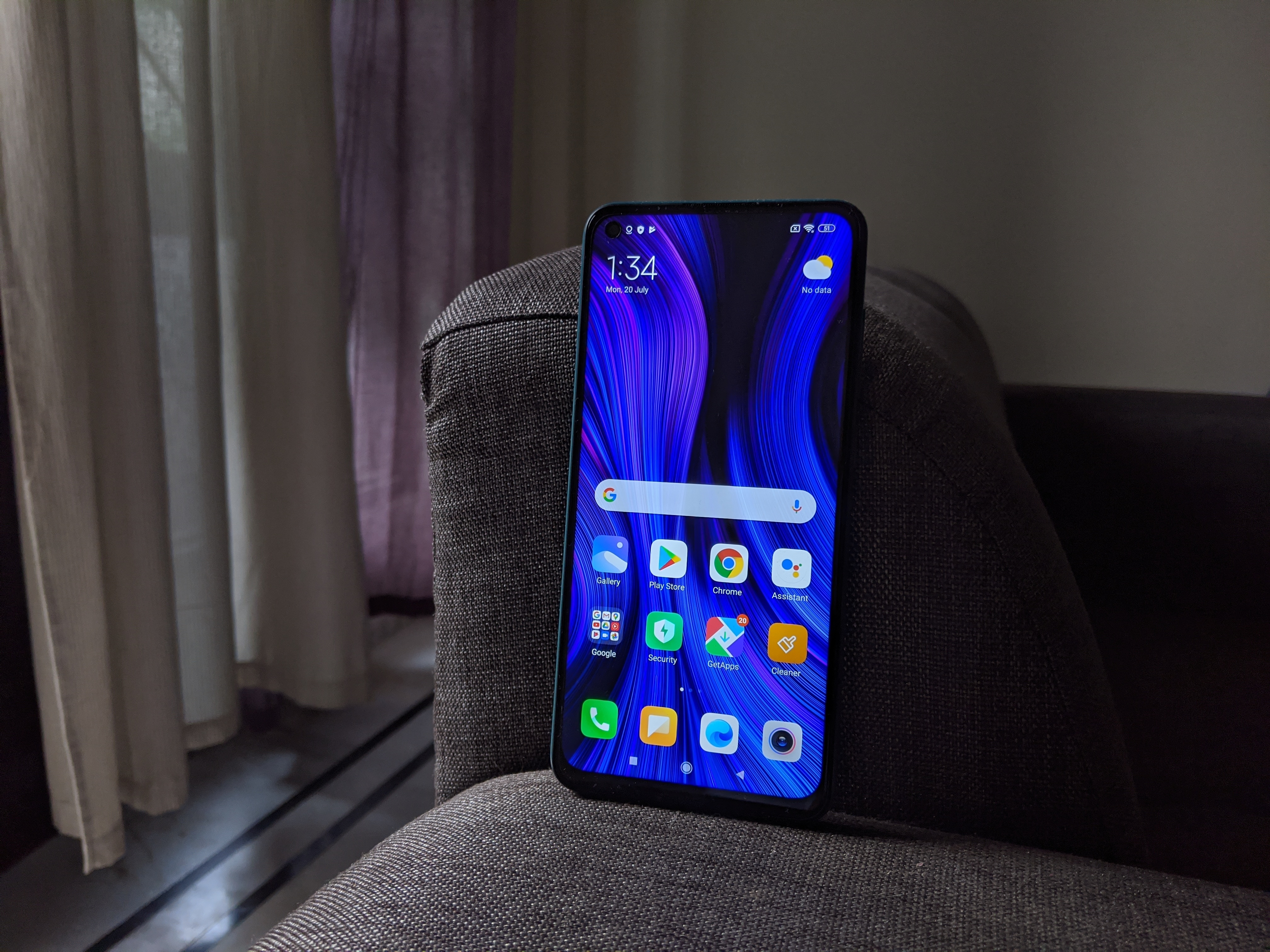

Given that at least all the most important specs, like camera, SoC, screen etc are ‘weaker' the other two smartphones in the series, anyone would ask the obvious - what's the point of buying the Redmi Note 9?
It's a no-brainer.
The Redmi Note 9 can get you almost the same kind of performance as the Redmi Note 9 Pro and the Redmi Note 9 Pro Max, but at a cheaper price point (the Redmi Note 9 Pro starts at ₹13,999 and the Pro Max starts at ₹16,999). This cheaper price point is what will seal the deal for most customers.
This is where Xiaomi has played it very smart. The top-end variant of the Redmi Note 9 is ₹15,000 (6GB/128GB) - the sub- ₹15,000 space for smartphones is a lucrative one and the Redmi Note 9 is a pretty solid offering here. And we'll tell you why we think so.
Looks good
The Redmi Note 9 comes in three colours - Aqua Green, Pebble Grey and Arctic White - with an Aura Balance design. We had an Aqua Green unit for review and the colour was quite nice, albeit the glass back is a fingerprint magnet. The fact that the fingerprint sensor on the smartphone is placed on the back (under the camera module) makes the glass back all the more prone to greasy finger dabs. You can always slap on a cover - but while transparent covers get yellow super fast, anything else would mean losing out on the phone's colour. The Arctic White looks particularly delectable since the gradient finish on it is more visible.
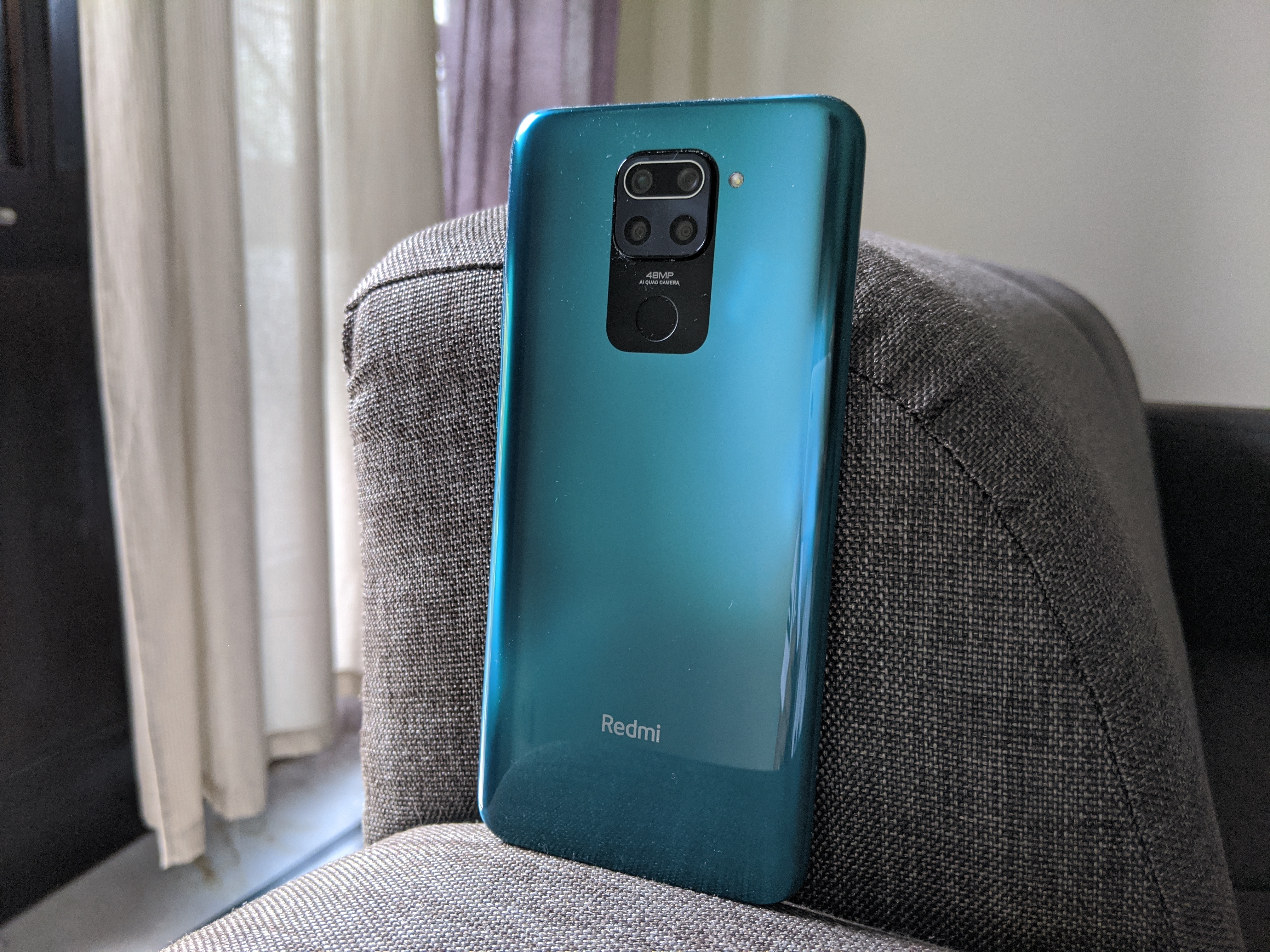

The Redmi Note 9 is not a small phone and that's ok because we are used to 6-inch plus smartphones now, and it isn't that slippery either, which further strengthens your grip.
The design on the Redmi Note 9 is identical to the Note 9 Pro and the Note 9 Pro Max, except for two features -the front camera on the Note 9 is housed in a punch hole on the top left corner of the screen, while on the other two phones it is bang in the centre. Also, the Note 9 has a fingerprint scanner on the back (it has face unlock too), unlike the side-mounted one on the other two.
Smooth performance, solid battery life
Despite running on the MediaTek Helio G85 SoC, performance is not a problem on the Note 9. Sure, it IS slower than the Note 9 Pro and the Pro Max, but it's not something most people will detect and or have a problem with. You have to remember that this is a cheaper phone.
The smartphone could handle most tasks and multiple tabs easily, however, it did heat up over gaming and video sessions.
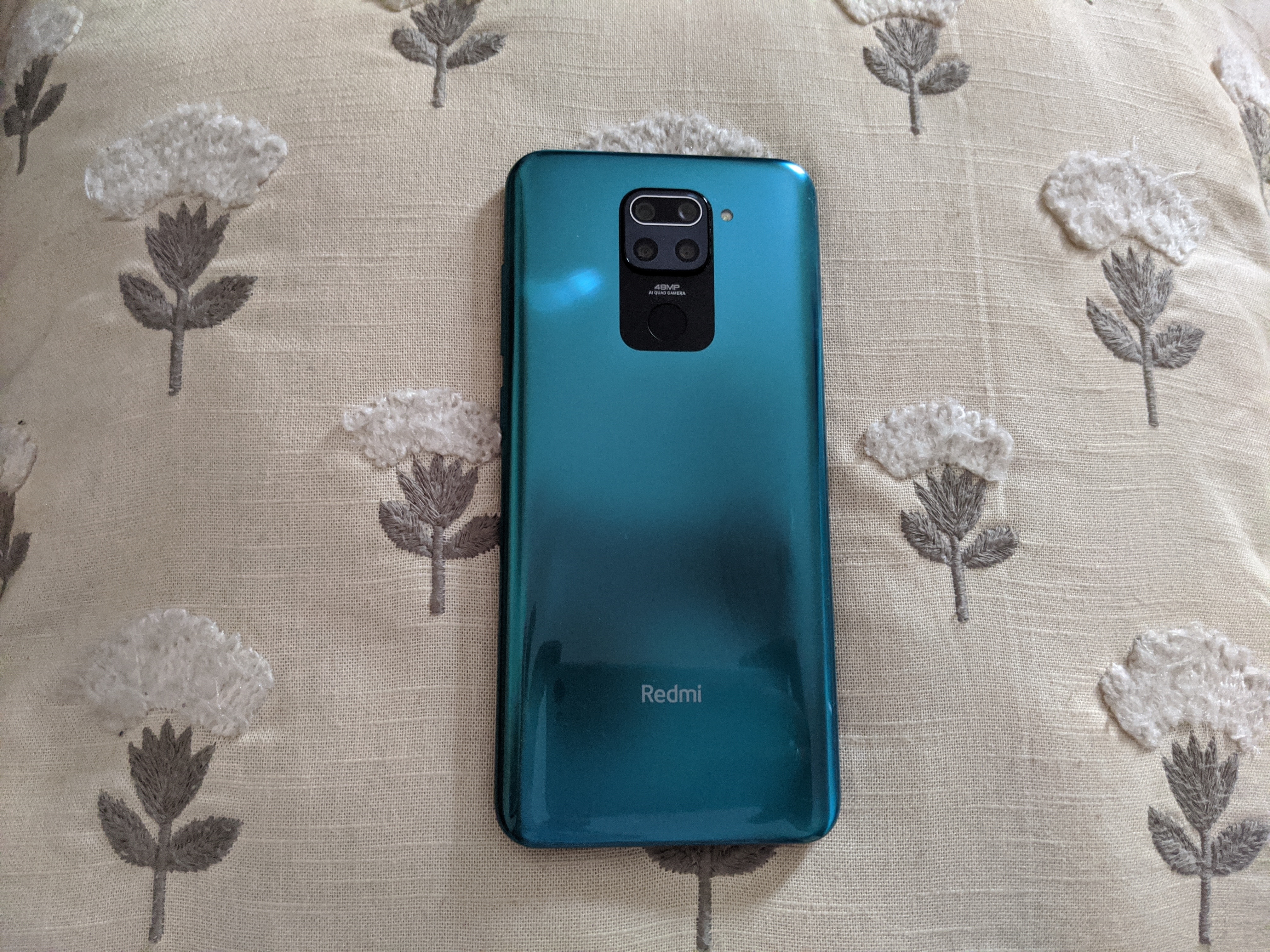

If you are not used to MIUI you will find the bloatware and the prompts to download some random apps that you really don't need annoying. You can delete most of these apps and not download others, thankfully. But other than that, it's as easy as Android.
I used the Redmi Note 9 as my secondary device, which meant minimal calls, texts and mostly photos and gaming and it carried me through almost two days without any trouble. This one also supports 9W reverse charging so you can use it to charge your Redmi buds, but I didn't try that one out. On intense use, it will last you a little more than a day.
Cameras are not bad, if you aren't too picky
The Redmi Note 9 features four rear cameras - 48MP primary sensor (Samsung ISOCELL Bright GM1, f/1.79 aperture), 8MP ultra-wide-angle sensor (118-degree field of view), 2MP macro sensor, and 2MP depth camera (autofocus). There is a 13MP camera on the front for selfies.
In my use, I found nothing much to complain about to be fair. The colours were a tad oversaturated for my liking, especially with the HDR mode on, but that's the norm with most smartphones these days and that's how most people like it. It works for social media.
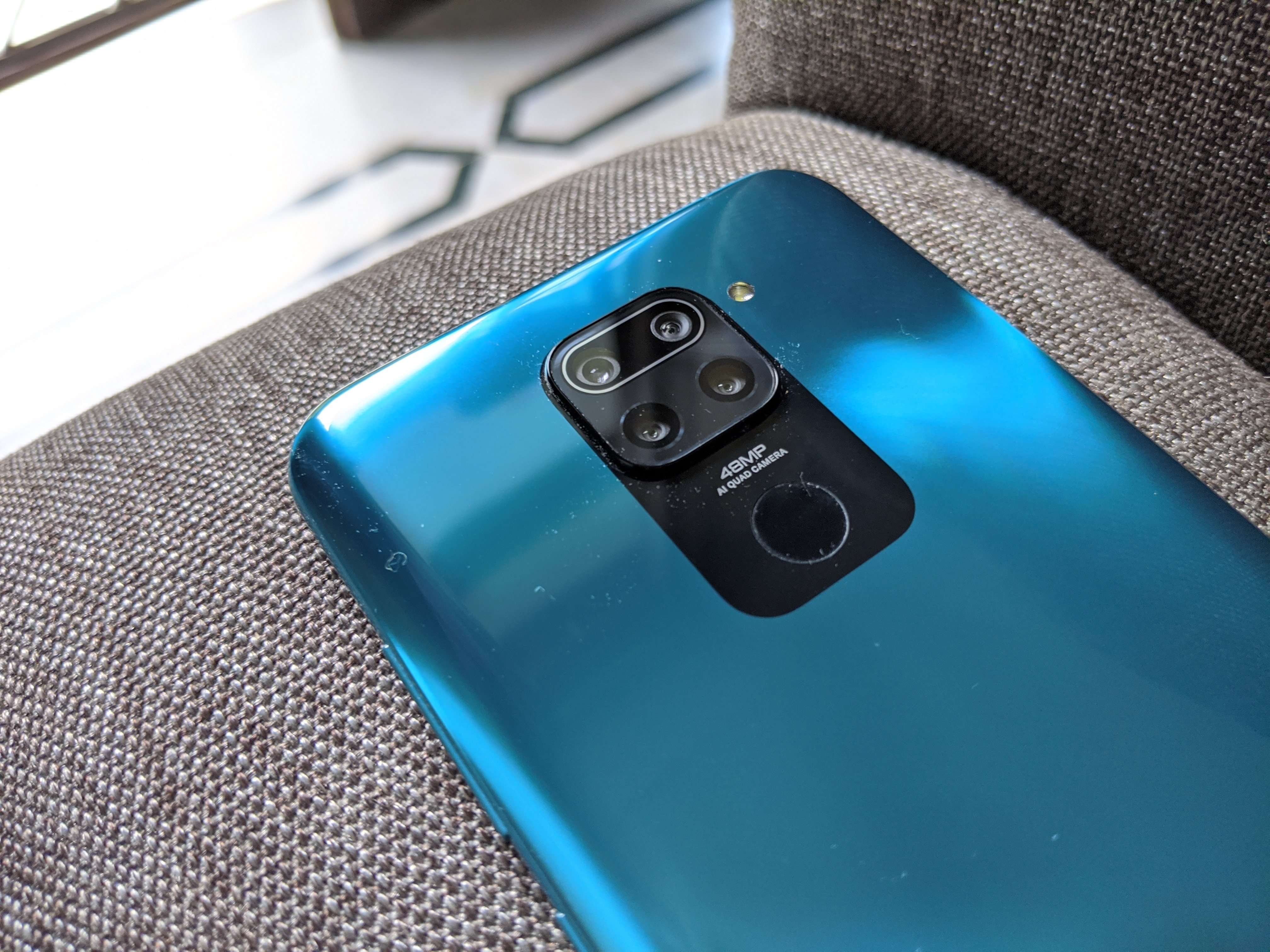

The pictures, when shot on wide-angle were unimpressive and lacked detail and while the macro shots and the portrait shots are not bad, the night mode is nothing to write home about.
The selfies are quite social-media ready, but if that's not your thing, you will find it to be too ‘beautified'. I quite like the filter options on the selfie camera though. There is also the document mode that allows you to scan documents and align them, given CamScanner is banned in India, this a super handy feature.
Given the price point, it's a job well done.
The one thing I really wish Xiaomi adds to normal photos is the Kaleidoscope feature that it has for short videos - it's a lot of fun and can make for some great creative shots.
Should you buy it?
I have already recommended this phone to at least two people. That's how much this smartphone makes sense. At this price point, the Redmi Note 9 ticks all the boxes. Sure, this isn't a smartphone for all and sundry - but not everyone has sizable budgets set aside for gadgets.
What you buy obviously depends on how much you can spend and in this mind-bogglingly vast market of smartphones, when one device fits your budget and gets the work done - you take it.
Catch all the Latest Tech News, Mobile News, Laptop News, Gaming news, Wearables News , How To News, also keep up with us on Whatsapp channel,Twitter, Facebook, Google News, and Instagram. For our latest videos, subscribe to our YouTube channel.



















